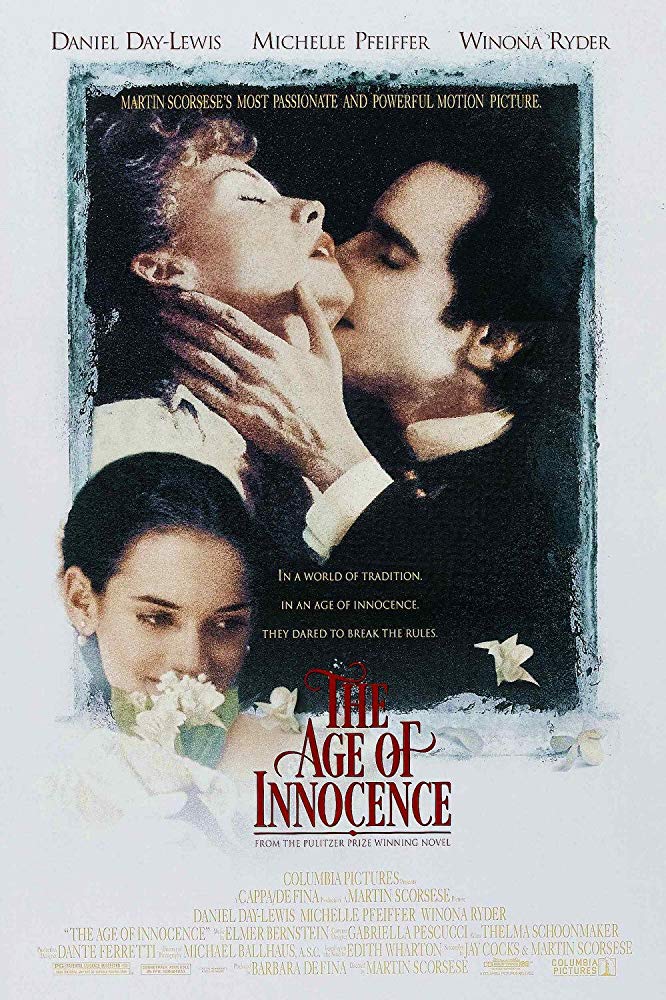

The Age of Innocence (Martin Scorsese, 1993) wr. Edith Wharton, Jay Cocks, Martin Scorsese; Daniel Day-Lewis, Michelle Pfeiffer, Winona Ryder; tale of 19C NY society: lawyer falls in love with woman separated from her husband while engaged to the woman's cousin
I wrote an article about this for Screen Education. Having sold the copyright to ATOM, I cannot republish the whole article here, but I'll show the first and last paragraphs.
Martin Scorsese might have been seen as an unusual choice of director for a costume drama without a single gangster in sight, as the man who made his name with Mean Streets (1973, which he wrote) and Taxi Driver (1976), and later wrote and directed Goodfellas (1990). But he is also the man who directed New York, New York (1977: a musical drama) and one of the New York Stories (1989, with Francis Coppola and Woody Allen). And his most recent film to be nominated for an Oscar for Best Film (it didn't get it) is Gangs of New York (2002), set in the 1860s (Jay Cocks is once again the principal screenwriter, and Daniel Day-Lewis is again a main character) - another costume drama, and another New York story. Clearly, Scorsese has an abiding interest in the character and history of the town in which he grew up, so perhaps the choice of this project is not so surprising after all. ...
Having discussed at almost all the length available to me some of the differences between film and novel, I conclude by insisting, nevertheless, how faithful the one is to the other. This is partly because almost all of the dialogue was written by Wharton, with a few minor changes, perhaps to make the actors more comfortable with their lines. Daniel Day-Lewis at one point, for example, prefers to say 'What the hell' where the novelist has 'What the Devil'. Having read the novel immediately before viewing the film, I was struck (and amused) by the fact that I could often say the next few words out loud before the actors got to them: that's how true the screenplay is to the novel. The other instance of the film's fidelity is in the unusually large amount of voiceover read (rather indifferently) by Joanne Woodward (Mrs Paul Newman: who in 1990 turned 60, and so was only a little older when the film was in production than Edith Wharton was when she first published her novel). I always discourage my students from using voiceover, as I think it's less effective in a film than visual modes of narration. In this case, the film-makers seem to have to have regarded their material with such adoration that they included a good deal in the film, in its original verbal form. Unfortunately for them, Wharton's writing is so good that it does make it very easy for more literary members of the audience to claim (wrongly, because you can't compare chalk with cheese) that the novel is 'better' than the film.
Garry Gillard, 'The invisible deity of "Good Form": The Age of Innocence', Screen Education, 37, 2004: 159-161.
Garry Gillard | reviews | New: 28 February, 2017 | Now: 25 January, 2024